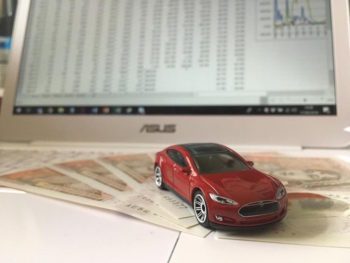Rising cost of vehicle repairs driving up fleet claims
Fleet insurance premiums could start soaring on the back of fast-rising vehicle repair costs.

The costs of vehicle repairs now outweigh those of personal injury claims for the first time in many years – with a potential knock-on effect for fleet insurance premiums
New data suggests the costs of vehicle repairs now outweigh those of personal injury claims for the first time in many years – with a potential knock-on effect for premiums.
It’s a significant evolution for the fleet insurance sector and one that specialist broker McCarron Coates is urging fleets to get on top of by doing all they can to lower risk.
The change is not down to any developments in legislation, such as the 2021 whiplash reforms, but is instead the result of soaring vehicle parts and repairs costs.
These costs are partly driven by difficulties in obtaining parts post-Brexit, whilst repairs costs are also being impacted as a result of overall labour shortages.
But the main issue is the increased complexity of vehicle repairs now, with so many different and interlinked electronic components within vehicles – which mean that “any reasonably significant prang is likely to see many parts of a vehicle needing to be replaced”.
It’s exacerbated when it comes to electric vehicles, as any damage to the battery is likely to result in a large repair bill or even a total write-off.
The cost of an electric vehicle claim is also influenced by repair delays, with an EV repair taking significantly longer to complete than one on a vehicle with an internal combustion engine (ICE). To add to the issue, EVs sometimes have to be sent to a specialist repair centre, increasing both downtime and the cost of a replacement vehicle.
And McCarron Coates believes some insurers are levying “extremely high compulsory excesses”, around £1,500 rather than the more common £500 on a fleet policy, due to lack of experience and knowledge of EVs.
It’s calling on fleets to tackle the issue by managing their risks on the road better, avoiding accidents in the first place. This should be down through increased risk management, more enhanced driver training and using telematics to help increase driver awareness of the hazards around.
Within van fleets, operators should find ways to give the driver ownership of their own vehicle, for instance, by accessing better van purchase options, or else offer incentives to drivers. This means drivers are likely to better protect vehicles that they’re in charge of.
Driver behaviour, in particular, also needs to be tackled; while vehicle use has fallen since the pandemic started, the value of claims now being registered is far higher than the pre-Covid norm, as accidents are proving more severe. Speed is a major reason for that – as already highlighted by Venson last year.
Ian McCarron, director at McCarron Coates, said: “It is essential that fleet operators act now, instilling a better driving culture and the principle of trying to keep the vehicle, its driver and all other third parties safe, at all costs.”












